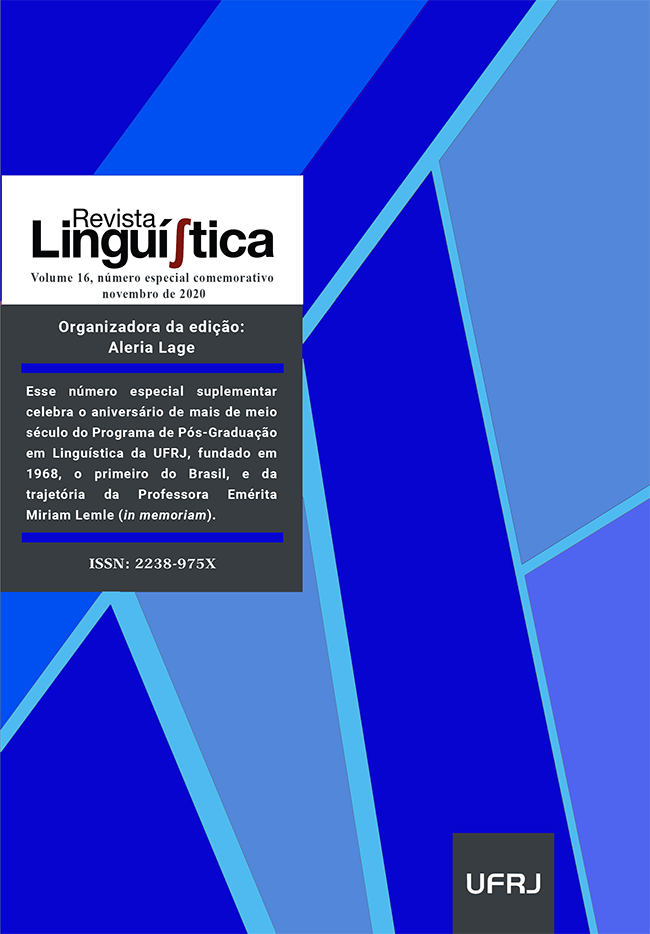Functional linguistics, cognitive linguistics and construction grammar: mapping the field of cognitive-functional approaches
DOI:
https://doi.org/10.31513/linguistica.2020.v16nEsp.a21492Keywords:
Functional Linguistics. Cognitive Linguistics. Construction Grammar. Cognitive-functional approaches.Abstract
Functional Linguistics (FL), Cognitive Linguistics (CL) and Construction Grammar (CG) are currently conceived as mutually compatible (if not largely overlapping) frameworks. This state of affairs tends to obscure the limits and differences between them, possibly leading to important misunderstandings. Given this (potential) problem, we address the following question: what are the limits, as well as areas of intersection, between CL, FL and CG? In a effort to provide an adequate answer, we adopt two simultaneous viewpoints: a historical one, in which we seek to briefly reconstruct the origins of each framework, and a contemporary one, in which we briefly describe the current state of the art in each field. In sum, we argue that (i) each framework emerged as a response to a different feature of the generative paradigm, and (ii) their historical development has led to a situation of significant convergence, but by no means complete overlap.
Downloads
Published
Issue
Section
License
Authors who publish in the Revista Linguí∫tica agree with the following terms:
The authors maintain their rights, ceding to the journal the right to first publication of the article, simultaneously submitted to a Creative Commons license permitting the sharing with third-parties of published content as long as it mentions the author and its first publication in the Revista Linguí∫tica.
Authors may enter into additional agreements for the non-exclusive distribution of their published work (for example, posting in online institutional or non-profit repositories, or book chapters) so long as they acknowledge its initial publication in the Revista Linguí∫tica.

The journal Revista Linguí∫tica is published by the Post-Graduate program in Linguistics of UFRJ and employs a Creative Commons - Attribution-NonCommercial 4.0 International (CC-BY-NC).









